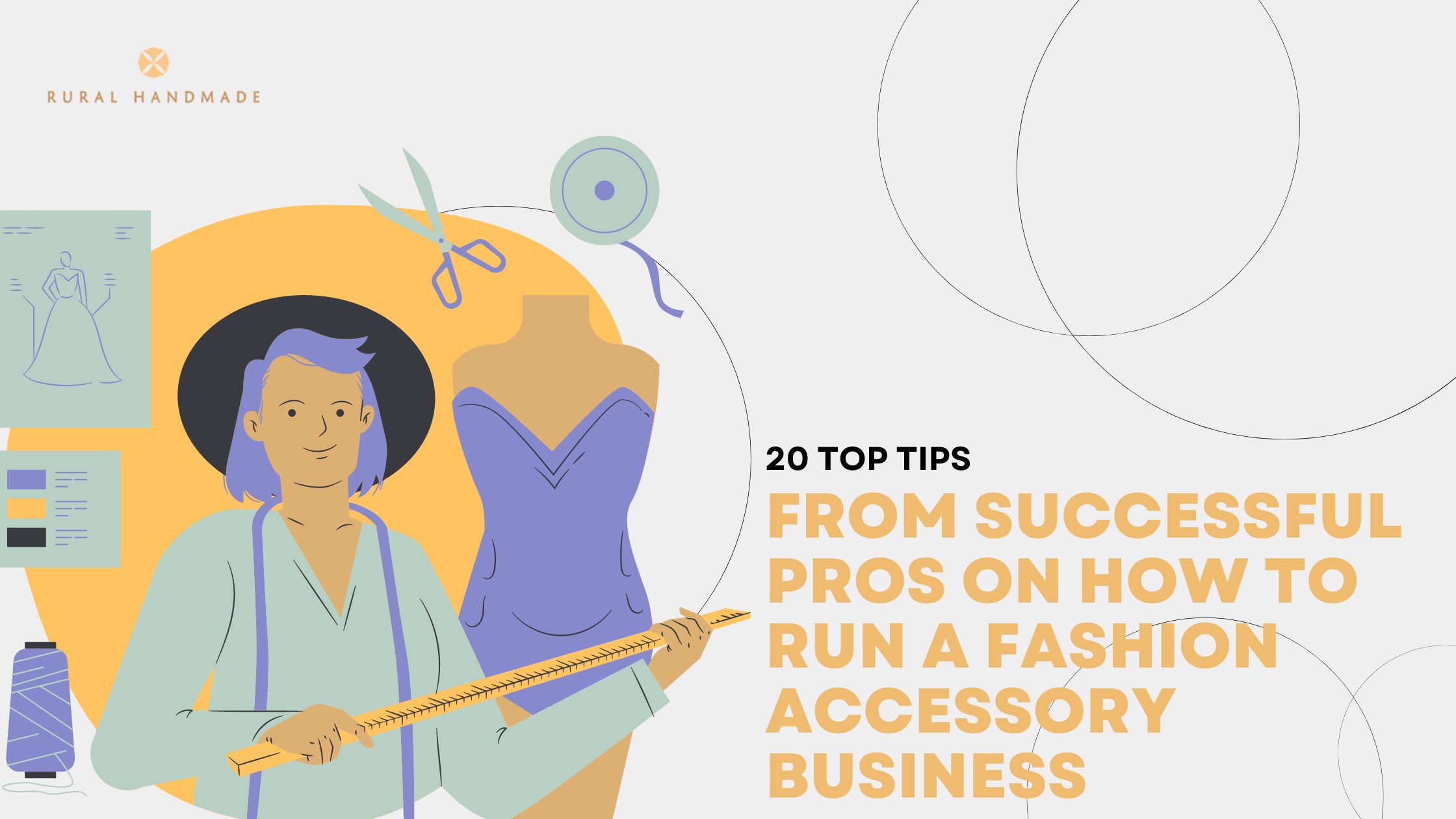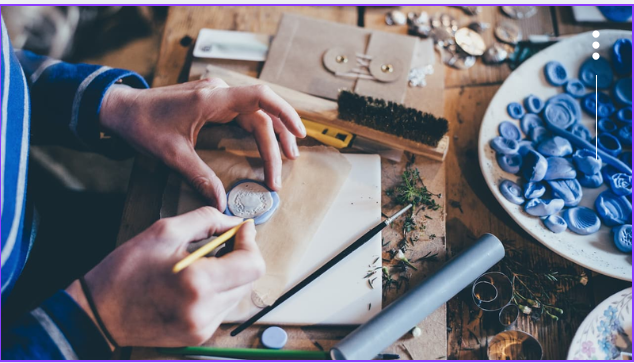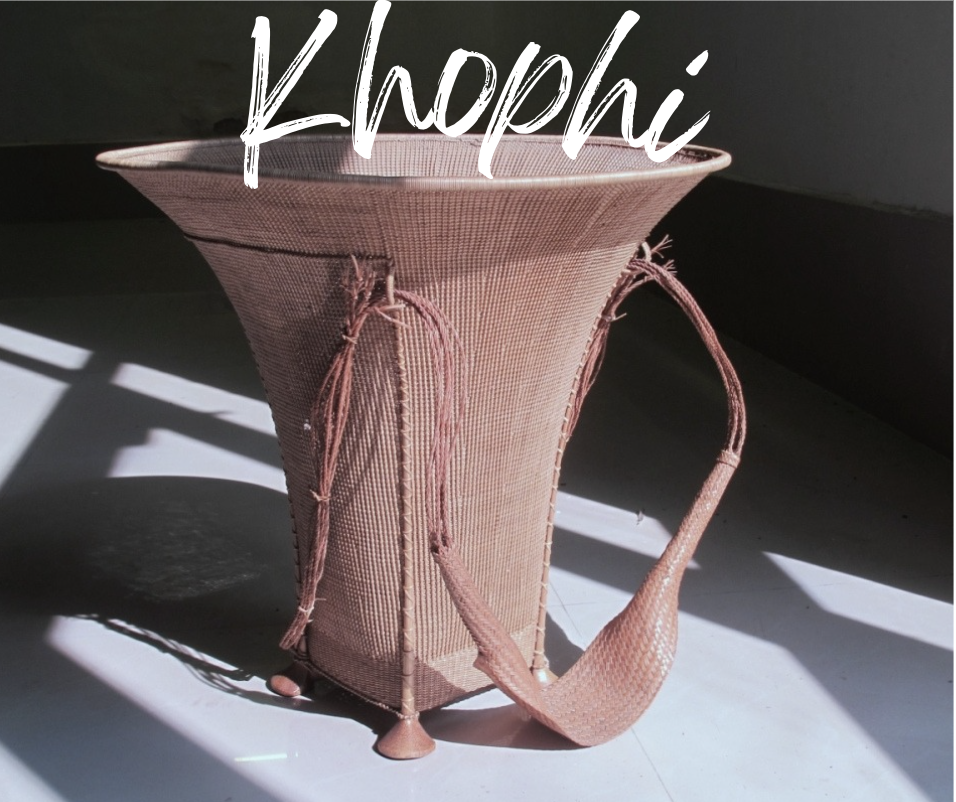20 Top Tips From Successful Pros On How To Run A Fashion Accessory Business
Mar 28, 2022 | Gulsen Vural
 We have collected the most useful tips from professionals who own and operate(d) thriving fashion accessory businesses. Check out the 20 top tips in this blog.
We have collected the most useful tips from professionals who own and operate(d) thriving fashion accessory businesses. Check out the 20 top tips in this blog. Part 1:
#1:
Just start and move closer to your goal every day
Company:
Cabrini Roy
British-Filipino
designer Cabrini Roy found success in her luxury women’s wear designer brand with
her modern Filipino flair. She has been seen in the past showcasing her line at
events such as London Fashion week and has earned recognition from many
critics.
In the podcast Designer to Designer led by Rebeca Tembo, Roy talks about how she achieved her goals.
Roy would
ask herself: ‘’What can I do today to move closer to my goal?’’
‘’When I
was working in retail, I use to do one thing every day to move closer. What can
you do today a step closer, even if it’s a baby step that will bring you to
your main goal? Just start and make those baby steps.’’
Roy’s advice is something that we can add to our day to see the change we want to see in ourselves; do something that will bring about change every day.
#2: Double down on what you are good at
Company: Freda Salvador
With two
decades of retail experience, Rachel Wolff is a partner and the Brand President
of Freda Salvador, luxury footwear and accessory brand based in California
that is handcrafted in Spain and El Salvador.
Rachel
joined the @Jointhecolab podcast and expressed many greats points about running a successful design-led fashion
business.
Rachel highlighted
the importance of loving what you do and finding a career that matches your
passion.
‘’If I love my work, I can
give it my all every day. If I feel passionate about what I am doing, then it’s
worth it.’’ says Rachel.
‘’We focused on doubling down on what we were good at and eliminating noise. It gave us clarity and cut out what we weren’t good at. A strong eco-system in the team helps them to excel in their job.’’
#3: Connect
with people who believe in your brand
Company: YEBA
Yeba Olaye is the incredible founder of YEBA, a modern Belgian
leather goods brand. The company offers modern essentials, as well as high-end
handbags that are inspired by Olaye’s African roots in Benin.
In her TED X Brussels talk, Olaye draws some great points about connecting with people who believe in
your brand.
After many rejections, Olaye eventually found a manufacturer in
Italy that truly believed in her. She also connected with a French director from
one of the biggest international fairs who wanted to help her achieve her dreams.
‘’You need to share your passion with people who want to achieve your vision. Connect with the right people who believe in your purpose. ‘’When people feel connected to your vision and believe in your purpose, they will join in achieving the impossible.’’- Olaye.
#4: Harness your
uniqueness
Company: Bethany Williams
UK-based fashion designer Bethany Williams found her label in 2017, focused on hand-woven textiles, recycled garments, and second-hand denim. She had quickly gained recognition from many fashion industry leaders such as Anna Wintour and has dressed many celebrities.
In 2019, she
was shortlisted for the LVMH designer prize, received the Queen Elizabeth II
Award for British Design, and was featured in the Next Green talents showcase
by Yoox and Vogue
Italia. She was also named the winner of the British
Fashion Council/ Vogue Fashion Fund.
In Vanity Fair, William talks about coming out of the pandemic:
‘I'd say to young designers, not to put too much pressure on themselves, to take care of yourself.’ ‘Everybody is unique, it's harnessing that about you and your process and putting that into your work and letting the work speak for itself. Your unique quality that makes you, you.’
#5: Do what feels
right for you
Company: Hades
Cassie Holland, the founder, and designer of Hades who launched in
2018 stormed into the fashion industry with her bright, bold and irreverent
slogan jumpers. Fashion leaders and celebrities were seen rocking Holland’s
designs and were seen featured in many well-known fashion magazines.
“I set up an
Instagram account for the brand and we started to be followed by some
influential people in the fashion industry, such as buyers and bloggers, and it
exploded from there.”-
Holland says in Drapers Magazine.
Holland started her brand first as a creative venture
and gives advice about starting a new brand today:
Part 2:
#6: Don’t settle
for ordinary
Company: Hot Futures
Founders Tanya and Jake first both discovered the shared love for
eyewear, fashion and connecting with people on a daily basis. Founded in
Bricklane, Shoreditch, they are all about sharing positivity, inclusivity and
interaction within their community.
Grown organically, the eyewear and clothing brand promotes the
expression in individuality and creativity in what they do.
One great tip they have shared is:
“As a brand, we are inspired by our followers who think a little differently, stay original and use fashion as their platform for personal expression; this collection is for people like you. Don't settle for the ordinary, the future is yours.’’- DapperMobster Magazine.
#7: Utilize your skills but be aware of the risks
Company: Manjerica
Founder Teresa Bettencourt from Manjerica runs a Portuguese brand
of leather bags.
In the ‘Go Youth Blog’,
she
calls on young people to utilize their skills to start a business, while
remaining aware of the risks involved.
‘When
young people choose to focus on entrepreneurial activities, it is not only a
way to try to overcome the current difficult economical environment, but
they’re also developing their qualities and competencies by doing something
they’re passionate about.’
‘I
think young people have many qualities that sometimes are wasted. Of course,
it’s necessary to understand the risks an entrepreneurial project has, but with
the right amount of motivation and strength, it is possible to dream and make
their own project a reality.’ says Bettencourt.
#8: Do not allow
mistakes to stop you
Company:
Amina Muaddi
Amina
Muaddi, founder and designer of her footwear brand Amina Muaddi.
Her first
brand didn’t succeed but her second label launched in August 2018 and made
$22.2 million in sales in the following 12 months.
‘’I missed
my first production. The timing was off, we were late with the samples and the
factory set to produce my first collection kicked me out before we even started
production. But do not allow mistakes to stop you.’’ says Muaddi.
She learned that ‘this is the jungle and you have to have thick skin to navigate your issues, especially as a woman.
#9: Have a great
business sense
Company: Rebecca Minkoff
In Fast Company’s ‘How to Successfully Start a Fashion Business' video, Sarah Lafleur interviews co-founder and creative director Rebecca
Minkoff talks about what makes a brand thrive.
Minkoff mentions the importance of
having business acumen.
‘’Today, you can’t exist by just being creative. You need to have
a great business sense or find a partner.’’ says Minkoff.
If you are the creative genius behind your fashion clothing and accessories, it may be necessary to find a business partner.
‘’Find someone where their happy place is the excel sheet.’’- Minkoff.
#10: Educate
yourself on marketing and PR
Company: Salome Designs
Salome Designs, a Newcastle-based jewellery brand with stocked
stores from London to New York, was founded by Kellie Daniels. Daniels’s inspiration
comes from the power of natural gemstones.
In her interview with High Life North,
she raises the importance of marketing and PR when starting a fashion business.
Daniel says ‘’You really do need to understand media and
marketing. Take as many courses as you can. Learn about digital marketing and
Google ads.’’
‘’My PR background has really helped
me to turn this from a hobby into a sustainable brand. So that would be it
really, just try and educate yourself as much as possible.’’
‘’Learn how to communicate and network and understand how to navigate digital marketing in a way that doesn’t cost you a fortune.’’
#11: Brand
visibility on social media
Company: Rhode
Rhode Resort
was launched in 2014 by co-founders Purna Khatau and Phoebe Vickers and has
gradually won over top retailers and Instagram users with
their resort wear. The company has now changed its name to Rhode so they can
offer a full year-round product line.
In an interview with Dhani Mau, from Fashionista Magazine,
they acknowledged that social media had aided the brand's success, without
using paid influencer marketing.
‘’We've been extremely lucky on the influencer/celebrity
side’’. "They're just fans of the brand so we've gotten a lot of
visibility that way."- Vickers
The hashtag
#ontherhode has over 1,500 posts.
#12: Take a real
human approach
Company: Lexxola
The growth
of Lexxola, a modern sunglass brand with a retro twist, has skyrocketed in
recent years. Celebrities and influencers of the likes of Emma Chamberlain, Dua
Lips and Kendall Jenner were seen rocking Lexxola sunglasses.
CEO of Lexxola Zane Saleh discusses the main catalyst for his
company's success in Office Magazine. That is ‘building amazing relationships that they have been able to form with
customers and influencers, and ‘inspiring people that they work with'.
‘It definitely comes down to the approach that we've taken.
We've really managed to form friendships with these individuals who have been
sharing our products.’
‘Because we've taken a real human approach to the way we've
developed relationships, it just means we have a lot of success in getting that
organic growth.’ Saleh says.
Saleh details gathering aggregate data and feedback from customers, and creating products that customers want is what has allowed their products to resonate with their community.
#13: Be customer-focused,
not competitor-focused
Company: Demellier
Mireia Llusia-Lindh founder of Demellier, is a London-based
handbag label prides itself on sleek, timeless designs. Her brand includes
anything from leather cross-body bags to laptop pouches and totes and has been
worn by celebrities and the Royal Family.
Demellier won the Walpole Brands of Tomorrow Award known then as
Milli Millu. But Mireia felt as if the brand didn’t align with the global
market and soon realised, she was becoming more disconnected from the products
she was offering.
Before the rebrand, Mireia realised to truly ‘‘evolve and grow,
you have to make difficult decisions.’’
She consulted a focus group of top customers and was committed to
working directly with people to guide her decisions.
Mireia found the importance of becoming more ‘customer-focused than competitor focused.
#14: Persuasion
Company: Sabby Lou Kit
British founder Sabrina Louisor's brand ‘Sabby Lou Kit’ is focused
on figure-hugging clothing pieces for women. She has built her own fashion
studio from the ground up.
On the ‘D2D’ podcast, Louisor recommended
a book called persuasion and the importance of utilising persuasion as a tool
to propel your communication within the fashion industry.
Louisor expresses that we should all think about how we interact
with people. Through talks, interviews, business meetings, scheduling photo shoots, liaising with someone who’s holding a space, and to stylists
and makeup artists.
‘It prepares you through the journey to work alongside other
creators to expand on your brand.’ Louisor says.
#15: Supplier
communication and securing a reliable delivery partner.
Company: Jamela Boutique
Seher Istar decided to take matters into her own hands after a
long search for a hat that would fit over her headscarf. Jamela Boutique has gained
a cult following across Australia.
Istar shares tips for starting a fashion business in Au Post. Here are a few
that stood out.
Communication with a supplier is key. ‘’When my first
hat wasn’t delivered on time, I called the supplier on a Sunday and would be applying
for a refund if I didn’t get it within 24 hours. The hat arrived the next day.’’
Secure a reliable delivery partner. ‘’Find a delivery partner that would support you in all aspects.’’ With packaging that fits your products and advice on shipping. Find an easy and convenient way partner.
#16: Building a bridge
between tradition and innovation
Company: Sabinna
Sabinna Rachimova, a fashion designer in London and founder of Sabinna
is known for combining tradition and innovation. She is also a lecturer in the
course ‘Fashion entrepreneurship and Innovation’ at the University of Arts in
London.
Rachimova is also seen winning many innovation prizes whilst
preserving tradition.
‘The fashion industry ignores a lot of technology
tools and a lot of opportunities. Once things are done in a certain way, people
try to stick to it. A lot of heritage and tradition involved.’
Her tip is to incorporate innovation to be flexible and adapt to situations. As things change every day, you need to have a
mindset than can react to changes in ideas
‘’The important thing is to take action.'' - Rachmova.
#17: Creating a
better omnichannel journey
Company: Mejuri
Fine jewellery brand Mejuri's astounding growth was spurred by
thinking like a tech company and attracted the same investor who backs Goop and
Farfetch.
Mejuri was
founded in 2013 by Noura Sakkijha and her husband Majed Massad, based their
business model on crowdsourcing.
In 2015, the founders relaunched their company
with the support of Sakkijha's brother, and since then, the company has evolved
away from crowdsourcing towards an in-house design team.
‘’We're one of the first brands to
close our retail stores, and as a team, we had to be creative and resilient. We
recognized that this was an opportunity to innovate and adapt and offer our
customers a valuable shopping experience.’’- Masad.
They did this by ‘doubling down on
their online experience and providing a better omnichannel experience such as ‘Buy
Online’ and ‘Pickup in Store’.
#18: Adapt your business
model
Company: Dress Cheshire
Christine
Colbert founder and chief style seeker at Dress Cheshire found her business
over 20 years ago. Her store can be found in Cheshire.
Her business idea of selling
pre-loved luxury goods was an instant hit and has gone from strength to
strength. She has won the Fashion Store of the
Year Award by Prestige Awards in 2021 and was featured in Cheshire Living’s
January issue in 2022.
However, Colbert
soon realised that it was time to reconsider her business model when the
pandemic struck. She opted to offer click-and-collect in store.
‘’Before coronavirus, I did not
offer shipping at all, only click-and-collect in-store via my social pages. The
virus has forced me to seriously reconsider my business model’’ says Colbert.
Reconsidering your business model is essential to adapt and survive external changes. Many businesses had transferred to e-commerce during the pandemic for the same reason.
#19: Research and
source the right suppliers
Company: Hak the Label
Hakima Al Said
The founder
of HAK the Label, a jewellery brand that evokes modern femininity through
minimalism, faced challenges when starting her company. Hakima Al
Said can teach us the necessity to do research and source the right suppliers.
‘’Since I started my own line, a lot of time and
effort goes into research and sourcing…more than you would expect. Jewellery
manufacturing is very complicated, so it’s important to find the right
suppliers and people to work with.’’- Hakima.
#20: Sustainability
in design
Company: This is a Love Song
Stephanie Sriklandi, founder of a women’s clothing brand called
This is a Love song, and fashion business coach featured in Forbes and Harper’s
Bazaar has a great tip for ensuring your products are sustainable.
In giving advice on how to start a sustainable fashion brand,
Sriklandi highlights the importance of sustainability in design.
’Sustainability in fashion is sustainability in design. Clothing can’t
be thrown away after the trend passes, the products must be relevant in the
future.’
‘If your customers can mix and match pieces and use them in the long run, they will really value that. They will also spend more money on products that last long.
Finally, Do Check a free tool for Search a trade mark from completely free. Even though every use of the tool costs Squadhelp money, trademark is so important we wanted to make this powerful search available to all entrepreneurs and small business owners struggling with trademark questions.
Recommended








